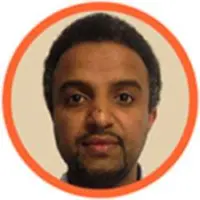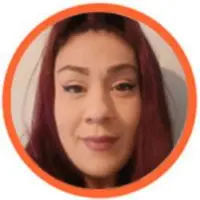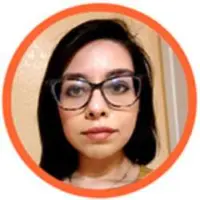About Adolescent Growth
You can find Adolescent Growth on a quiet street in Commerce, California, a few steps away from a beautiful private park. They offer residential mental health treatment to teenagers between the ages of 12 and 17. They can treat substance use disorder as part of their co-occurring disorder program.
Their program has a minimum stay of 45 days, but no maximum. This gives teenagers ample time to find healing and stability before tackling their everyday lives again.
Individualized Treatment Plan
Upon administration, each teen receives their own treatment plan that outlines individual, family, and group therapy sessions and other supportive services.
Since they only accept six teenagers at a time, your child receives a lot of personal attention throughout their treatment. The warm staff are available 24/7 to give the kids help during a crisis or simply a listening ear.
Holistic Care
The treatment plan includes a range of supportive activities and services designed to work in conjunction with traditional talk therapy methods. A major component of their holistic treatment is based on building physical health through exercise and proper nutrition.
Teens also receive academic instruction throughout their stay, ensuring they stay on top of school work. This makes the transition out of treatment smoother because there’s no frantic need to catch up on weeks’ worth of work.
High Prioritization of Family Involvement
One thing I like about Adolescent Growth’s approach is that they place a lot of emphasis on involving and supporting teenagers’ families. They recognize the difficulties that parents and siblings can face when their loved one is struggling and create a safe place for families to learn and heal together.
Their program includes weekly or bi-weekly family therapy and parenting groups. They feature multi-family therapy groups and workshops for parent restoration.
Latest Reviews
Rehab Score
Gallery


Other Forms of Payment
Private insurance refers to any kind of healthcare coverage that isn't from the state or federal government. This includes individual and family plans offered by an employer or purchased from the Insurance Marketplace. Every plan will have different requirements and out of pocket costs so be sure to get the full details before you start treatment.
Self-pay involves paying for treatment out of your own pocket. You can use savings or credit, get a personal loan, or receive help from family and friends to fund your treatment. If you don't have insurance or your insurance plan doesn't cover a specific program, self-pay can help ensure you still get the care you need.
Addiction Treatments
Levels of Care
Aftercare is an extremely important part of recovery and all graduates are encouraged to attend their Alumni Group as a part of their relapse prevention plan. The alumni group is free of charge and open to all past clients who have completed the program successfully. The Alumni Group is designed to support past clients and help them stay on track throughout their recovery. It is a great way for them to stay in touch with their peers in recovery and receive ongoing support from certified clinicians.
The Intensive Outpatient Program (IOP) is a structured, short term treatment program designed for teens who have begun to struggle in their day to day lives due to mental health, eating disorders or substance abuse. A good IOP candidate is still able to function at home and in the community but requires a treatment plan that is more comprehensive than weekly therapy. The Intensive Outpatient Program is a Joint Commission accredited program that includes individual therapy, group therapy and family therapy. Clients attend treatment at Adolescent Growth's beautiful, home like facilities three hours per day, three days per week.
Adolescent Growth - Zindell Avenue’s residential program for teens is an opportunity for young people who are struggling to immerse themselves in a healthy milieu that includes twenty four hour support, one-on-one therapy, psycho-educational groups, physical fitness, healthy meal plans and much more. Their residential program’s daily schedule is designed to model a healthy lifestyle.
At certain points in the recovery process, it's important to have support available 24/7. 24-hour clinical care offers a safe environment in which to recover from drug or alcohol addiction in peace, knowing medical detox and other treatment will happen with professionals on hand.
12-step programs are addiction recovery models based on Alcoholics Anonymous (AA). A number of substance abuse programs (including some drug and alcohol rehab centers) use the 12 steps as a basis for treatment. Beginning steps involve admitting powerlessness over the addiction and creating a spiritual basis for recovery. Middle steps including making direct amends to those who've been hurt by the addiction, and the final step is to assist others in addiction recovery in the same way. 12-Step offshoots including Narcotics Anonymous (NA), Cocaine Anonymous (CA), Dual Recovery Anonymous (DRA), Sex and Love Addicts Anonymous (SLAA) and Gamblers Anonymous (GA).
A partial hospitalization program (PHP) is a short-term form of intensive rehab, usually for those with acute symptoms that are hard to manage but don’t require 24-hour care. PHPs have structured programming (i.e. individual and/or group therapy), and usually meet 3-5 days a week for around 6 hours (i.e. 9am-3m). Some PHPs are residential (patients sleep on site) and some are not, so patients sleep at home. PHPs can last from 1-6 months, and some offer transportation and meals.
Treatments
The goal of treatment for alcoholism is abstinence. Those with poor social support, poor motivation, or psychiatric disorders tend to relapse within a few years of treatment. For these people, success is measured by longer periods of abstinence, reduced use of alcohol, better health, and improved social functioning. Recovery and Maintenance are usually based on 12 step programs and AA meetings.
Drug rehab in California teaches participants constructive ways to stay clean and sober. Treatment revolves around helping individuals stop using the substance they are addicted to and learn healthy habits to avoid relapse.
Many of those suffering from addiction also suffer from mental or emotional illnesses like schizophrenia, bipolar disorder, depression, or anxiety disorders. Rehab and other substance abuse facilities treating those with a dual diagnosis or co-occurring disorder administer psychiatric treatment to address the person's mental health issue in addition to drug and alcohol rehabilitation.
A combined mental health and substance abuse rehab has the staff and resources available to handle individuals with both mental health and substance abuse issues. It can be challenging to determine where a specific symptom stems from (a mental health issue or an issue related to substance abuse), so mental health and substance abuse professionals are helpful in detangling symptoms and keeping treatment on track.
Opioid rehabs specialize in supporting those recovering from opioid addiction. They treat those suffering from addiction to illegal opioids like heroin, as well as prescription drugs like oxycodone. These centers typically combine both physical as well as mental and emotional support to help stop addiction. Physical support often includes medical detox and subsequent medical support (including medication), and mental support includes in-depth therapy to address the underlying causes of addiction.
Clinical Services
Cognitive Behavioral Therapy (CBT) is a therapy modality that focuses on the relationship between one's thoughts, feelings, and behaviors. It is used to establish and allow for healthy responses to thoughts and feelings (instead of unhealthy responses, like using drugs or alcohol). CBT has been proven effective for recovering addicts of all kinds, and is used to strengthen a patient's own self-awareness and ability to self-regulate. CBT allows individuals to monitor their own emotional state, become more adept at communicating with others, and manage stress without needing to engage in substance abuse.
Creativity is inherently healing, and can help those in recovery express thoughts or feelings they might not otherwise be able to. Creative arts therapy can include music, poetry/writing, painting, sculpting, dance, theater, sandplay, and more. Unlike traditional art, the final product matters far less than the experience of creation and expression itself.
Dialectical Behavior Therapy (DBT) is a modified form of Cognitive Behavioral Therapy (CBT), a treatment designed to help people understand and ultimately affect the relationship between their thoughts, feelings, and behaviors. DBT is often used for individuals who struggle with self-harm behaviors, such as self-mutilation (cutting) and suicidal thoughts, urges, or attempts. It has been proven clinically effective for those who struggle with out-of-control emotions and mental health illnesses like Borderline Personality Disorder.
Eating disorders include anorexia, bulimia, binge eating, and dysfunctional eating patterns. Many psychologists and other mental health professionals consider eating disorders to be food addictions, meaning food is being used in an addictive way (similar to drug or alcohol addiction). Certain substance abuse treatment programs will have treatment for eating disorders as one of the services offered. An eating disorder may also present as a co-occuring disorder or dual diagnosis alongside drug and alcohol addiction.
Adolescent Growth - Zindell Avenue treatment programs place a high degree of importance on the role of family in treatment. They work closely with the family right from the very beginning. They consider the family to be the most important element of treatment. Family is the support system that the teen returns home to after they help patients develop the skills they need. Families participate in weekly and bi-weekly family therapy, parenting support groups, multi family groups and parent restoration weekend workshops on Saturdays. Without an adequate support system at home, adolescents often lapse back into old patterns and behaviors.
Fitness therapy blends exercise with psychotherapy for a fun, inspiring, and effective way of treating addiction and other issues. By incorporating movement into counseling sessions, clients become more empowered, motivated, and goal-oriented, all while strengthening their bodies and becoming more flexible. Fitness Therapy is usually used to complement a course of treatment (inpatient or outpatient) to make it even more successful. Increasing the connection between a patient’s mind and body helps both with healing as well as in creating new, healthy habits.
Group therapy is any therapeutic work that happens in a group (not one-on-one). There are a number of different group therapy modalities, including support groups, experiential therapy, psycho-education, and more. Group therapy involves treatment as well as processing interaction between group members.
In individual therapy, a patient meets one-on-one with a trained psychologist or counselor. Therapy is a pivotal part of effective substance abuse treatment, as it often covers root causes of addiction, including challenges faced by the patient in their social, family, and work/school life.
Life skills trainings involve all the skills a person must have in order to function successfully in the world. These include time management, career guidance, money management, and effective communication. Truly successful addiction recovery is based on the ability to not only live substance-free, but to thrive. Life skills teaches the practical necessities of functioning in society, which sets clients up for success in life, and therefore sobriety.
Nutrition therapy, aka medical nutrition therapy (MNT), is a way of treating physical, emotional, and medical conditions through diet. Specific dietary plans are designed by professional nutritionists or registered dietitians, and patients follow them in order to positively affect their physical and mental health.
Recreational therapy (aka therapeutic recreation) uses creative and fun activities to help with addiction recovery. Recreational therapists lead patients in entertaining and engaging activities like sports or games; art (drawing, painting, sculpture); drama, music, and dance; and/or community outings (field trips) to improve patients' physical, social, and emotional well-being.
Amenities
-
Residential Setting
-
Private Setting
-
Yoga Studio
-
Gym
Staff & Accreditations
Staff

Dr. Hiruy Gessesse
Psychiatrist

Christina Tornero
Floor Leader

Amy Chen
Primary Therapist

Valorie Longo
Academic Coordinator
Accreditations

The Joint Commission, formerly known as JCAHO, is a nonprofit organization that accredits rehab organizations and programs. Founded in 1951, the Joint Commision's mission is to improve the quality of patient care and demonstrating the quality of patient care.
Joint Commission Accreditation: Yes
Accreditation Number: 419584
Contact Information
6317 Zindell Avenue
Commerce, CA 90040